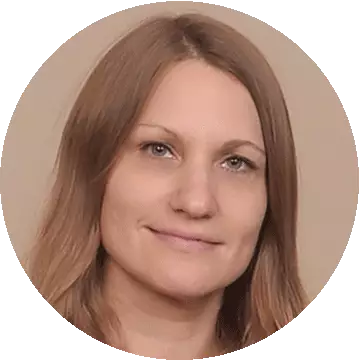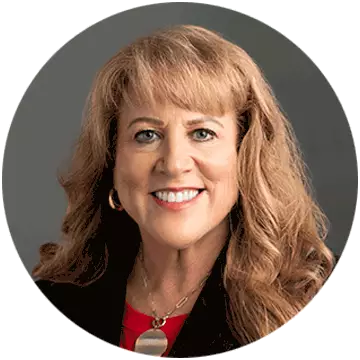Changing careers from teaching in the classroom

Written by Camilla Andersson

Reviewed by Pamela M. Roggeman, EdD, Dean, College of Education

Are you considering moving on from classroom teaching? Fortunately, if you’re a teacher with years of experience, you may possess a range of useful skills that can transfer to other careers. For example, teachers often have leadership and problem-solving skills that can translate well to the right opportunity.
While moving on from teaching can feel like the end of an era, rest assured you’re not the only one. According to a National Education Association (NEA) survey, a large percentage of teachers are considering leaving their profession earlier than planned, partly because of burnout caused by understaffing and heavy workloads. Looking to the future and where you might want to go next is a logical next step.
Learn more about changing careers from teaching and what to look for when choosing a new profession.
Why consider changing careers from teaching?
There can be many reasons that lead you to look toward the future with a new career in mind. Moving on to a career you’re excited about may lead to better job satisfaction. Or the newness of it might help spur personal growth
. There’s no predicting what positive outcomes the change may bring.
Of course, not everyone’s move out of teaching is because of personal preference. According to the NEA survey, the COVID-19 pandemic exacerbated long-standing problems in the profession, including budget cuts and staffing shortages that can trace their origins to the economic crisis of 2009. A shortage of teachers means those who stay in the profession often take on, by choice or circumstance, more responsibility — and that is leading to burnout.
Whatever your reasons for moving on, it’s normal to experience mixed emotions. The good news? You don’t necessarily have to leave education entirely if you’re looking to quit classroom teaching. You can explore roles within school administration, for example, to stay in the same field but experience a new role.
Identifying transferable skills
Changing careers from teaching can be a smoother transition if you find a job that builds on some of the skills you already have. That doesn’t mean you won’t have to learn new skills. In fact, acquiring a role’s requisite hard skills may require a return to school in some form. But transferable skills can significantly help the transition.
Here are some transferable skills teachers tend to develop in the classroom:
- Communication: Communication may be the most important skill teachers have, because it’s impossible to do the job well without it.
- Conflict resolution: Was your time teaching filled with well-behaved students, cooperative parents and a school district that gave you all the resources you needed? If yes, you were a unicorn. If not, the good news is you likely developed some good negotiation skills while resolving a variety of conflicts and challenges throughout your teaching career.
- Organization: From grading papers to tracking overall grades, you had to keep a lot straight and likely developed organizational skills along the way. These can likely transfer well to administrative jobs at the school district and beyond.
- Leadership: As a teacher, you’re used to leading the classroom, holding meetings with teachers and parents, enforcing rules and much more. This can lead to big-picture thinking, strategizing and being comfortable with leading conversations to meet goals.
Transferable skills can be as valuable as job-specific skills, but they may be harder to describe in a job application. The best way to showcase transferable skills on your resumé and cover letter is through specific details of your job responsibilities and accomplishments.
It’s also helpful to quantify them whenever possible. For example, rather than saying, “I developed a program to improve reading comprehension,” use quantifiable language like, “My math intervention and tutoring strategy led to an 18% improvement in math test scores.”
As a teacher, you also possess insight into what works and, more importantly, what doesn’t work when it comes to the ways schools are run. If you have ideas about how schools or teaching could improve, this knowledge can be invaluable for administrative roles within the school district.
Common career changes for teachers
When choosing between different career paths, first consider whether you want to stay in the education field. School administration jobs naturally share several characteristics with teaching jobs, which can be negative or positive depending on your reasons for changing careers in the first place. If your reasons for leaving are specific to teaching but not education as a whole, you might find a career in administration more rewarding.
Careers in school administration
There are jobs in school administration at several levels: school, district and state.
If you want to have a more direct say over how a specific school is run, consider pursuing a position as a principal . This may require previous leadership experience, including but not limited to a role as a vice principal.
If you are more interested in the academic side of things, you may want to look into becoming a curriculum director or an instructional designer. In those roles, you may help develop educational material and assess its impact and effectiveness.
These and similar jobs will have varying requirements for education and experience. To evaluate what you need for a job you’re interested in, explore credible online sources such as BLS.gov .
Careers outside of school administration
If you’re ready to leave K–12 education behind for good, you may still be able to leverage your soft and hard skills in your next role. Leadership, communication and conflict resolution, for example, are skills that can apply to a variety of industries.
Before you switch fields completely, however, consider options that bridge education with other sectors. Training and development managers, for example, don’t necessarily work in the K–12 space, which offers a welcome change for some educators. They do, however, leverage many of the same skills. In this way, educators can, with sufficient education and experience, move out of the classroom or even administration to pursue a new career.
Preparing for a career transition
A career change from teacher to administration may require a master’s degree on top of your teaching experience. Once you’ve decided which path appeals to you most, create an action plan for your career transition. If you want to pursue a career path that requires you to go back to school, online classes can offer you the flexibility necessary to continue teaching while you prepare to change careers.
There are other ways to prepare for your new job while you remain in your current position. For example, you can look into new networking opportunities through professional organizations aligned with the industry where you’d like to work.
Additionally, conferences and continuing education classes can improve your knowledge of the field and allow you to develop necessary hard skills while also potentially making new connections.
It’s wise to leave a job on good terms. This will help you get references, make a better impression during job interviews and leave the door open should you choose to return. Ideally, this means that you should time your resignation so that you leave at the end of the school year, unless you’re a substitute teacher or otherwise not under a contract.
If you belong to a teachers’ union, be sure to consult it regarding terms of resignation so that you’ve addressed all considerations before leaving your position.
Overcoming challenges in career change
You may wonder what happens to your benefits, and especially your pension, when you leave your teaching job. The answer to that depends on the state and school district you work in, your contract and local union agreements.
Just as the first day of the school year can feel chaotic, making the transition out of teaching can feel overwhelming at first. Overcome challenges by seeking support and guidance from people who work in your new profession or industry. One way to do this is to join networking groups or professional organizations. Mentorship and volunteering opportunities are other ways to obtain this support.
Take the first step toward changing careers from teaching
If you’re looking to change careers from teaching, it may be your turn to become a student again.
You can return to the classroom virtually by enrolling at University of Phoenix. Not only is this a convenient way to learn new skills, but it also allows you to maintain your current schedule and role while earning a new degree or certificate.
University of Phoenix offers a Master of Arts in Education/Administration and Supervision as well as a variety of bachelor’s and master’s degree options.
Get more information on how University of Phoenix can help you educationally prepare to pursue a new career by getting in touch with an enrollment representative .

Teachers develop a range of skills teaching in the classroom, not the least of which is critical thinking. So many employers claim that this trait is scarce, but they see evidence of it when they visit their own child’s classroom and are impressed by that classroom teacher.
Pamela Roggeman, EdD
Dean, College of Education
Read more articles like this:

ABOUT THE AUTHOR
Camilla Andersson is a writer with a degree in journalism. She has written and edited content for trade magazines, blogs, white papers and newsletters. Camilla lives in Los Angeles and is a graduate of San Francisco State University. She grew up in Sweden, where she published her first work, an op-ed in the newspaper Aftonbladet, at the age of 15.

ABOUT THE REVIEWER
As dean of the University of Phoenix College of Education, Pamela Roggeman has spent over a decade in higher education teacher preparation in both the public and private sector. Her experience has included national partnerships that help to advance thought leadership in the field of education. Dr. Roggeman also serves as the President of the Arizona Educational Foundation’s Board of Directors.
This article has been vetted by University of Phoenix's editorial advisory committee.
Read more about our editorial process.





